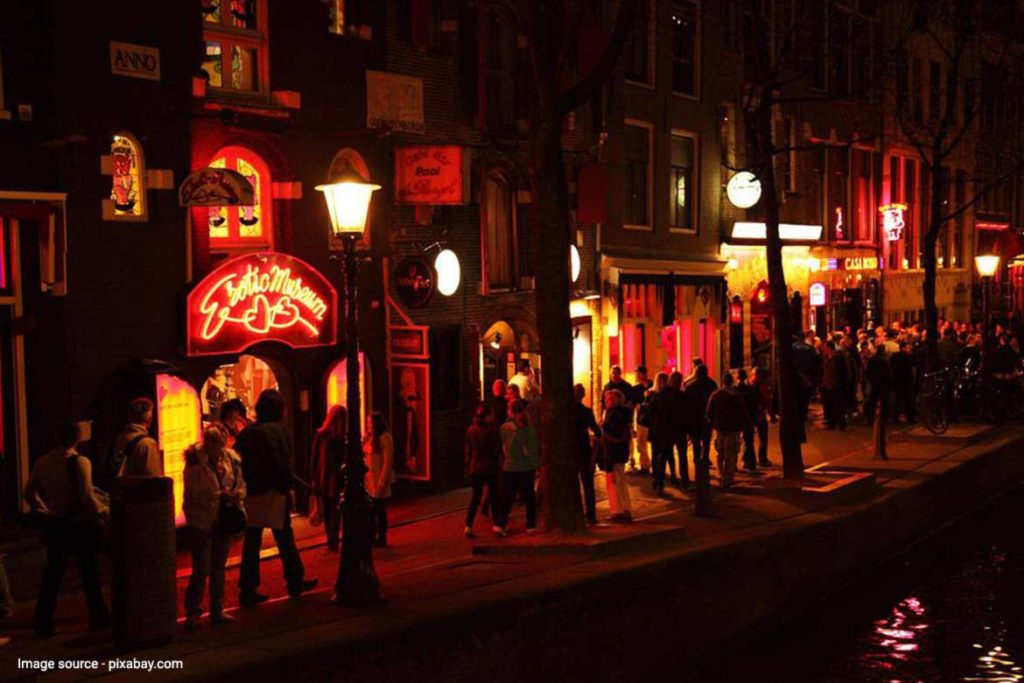Prostitution has been recognized as a profession by the Supreme Court. This is the first time the country’s highest court has issued a prostitution-related injunction. The court stated unequivocally that the police are prohibited from taking action against sex workers and their clients who perform this work with their consent. Respect and equality before the law are likewise guaranteed to sex workers.
This Supreme Court ruling is regarded as crucial, particularly in light of the ongoing debate about equal rights in society. It’s also up for debate whether the situation of sex workers in the country would improve as a result of the court’s judgement. Will they be protected by the law now? Let’s know
After all, what did the court say?
“Prostitution is a profession, and sex workers are entitled to respect and equal protection under the law,” stated a three-judge panel led by Justice L Nageswara Rao and including Justice BR Gavai and Justice AS Bopanna.
“Sex workers are entitled to equal protection of the law. When it is clear that the sex worker is an adult and is participating with consent, the police must refrain from interfering or taking any criminal action. It need not be gainsaid that notwithstanding the profession, every individual in this country has the right to a dignified life under Article 21 of the Constitution” according to a bench of three judges.
What is the current legal standing on prostitution?

Also read: Countering China! India joins 12 membered IEPF; know, what it is? Significance and concerns
Prostitution is not unlawful in the broadest sense, according to the Indian Penal Code (IPC), although particular behaviours are punishable under specific provisions of the Act. For example, persuading someone to prostitute services in public areas, prostitution of children, and performing prostitution activities in hotels, organizing sex workers to engage in prostitution is prohibited by the law.
If a prostitute is caught soliciting or seducing someone, she can be arrested under the Immoral Traffic (Prevention) Act of 1956. In addition, the sex worker is not permitted to make her phone number public. For this, she will be sentenced to six months in prison and fined.
In 2014, Article 23 of the Constitution was amended. It also has numerous rules against human trafficking. Forced labour and human trafficking are considered to be outlawed. Human trafficking and forced labour are both crimes that can be prosecuted. That is, if a man forces a woman into prostitution, he can be prosecuted.
In India, prostitution is not banned in general, however, soliciting prostitutes and prostitution in public are illegal. Running a brothel and pimping is also against the law.
What were the Supreme Court’s instructions?
Sex workers should not be detained for having sex with their consent. They should not be penalised in any manner, nor should they be harassed in any way. During raids on brothels, sex workers cannot be arrested.
The court ruled that a sex worker’s child should not be separated from the mother. It should not be assumed that a youngster who is discovered living in a brothel or with sex workers has been trafficked. A test can be performed if the sex worker asserts that the minor is his or her son or daughter. If the accusation is valid, the minor should not be separated from his or her parents.
The identities of sex workers should not be revealed by the media. The sex worker may be allowed to leave the correctional facility if she so desires. In this case, the court has asked for a response from the government within six weeks. On July 27, the matter will be heard again.
According to Advocate Virag Gupta, the Supreme Court issued this temporary order under Article 142. This article is usually where final commands are provided.
What will happen if the central government follows the Supreme Court’s instructions?
The most significant change will be in the area of equal legal rights. If the government follows the guidelines, sex workers will have the same legal rights as everyone else. If a sex worker registers or makes a criminal, sexual, or other type of complaint in such a circumstance, the police will have to treat it seriously. In addition, Police will be required to act in accordance with the law.
If the court’s orders are followed, sex workers will not be arrested or harassed by the police. If a sex worker is sexually abused, he or she will be treated the same as any other sexual abuser in terms of medical care and other assistance. All sex workers must be treated with respect by the police. They cannot be verbally or physically tortured.
